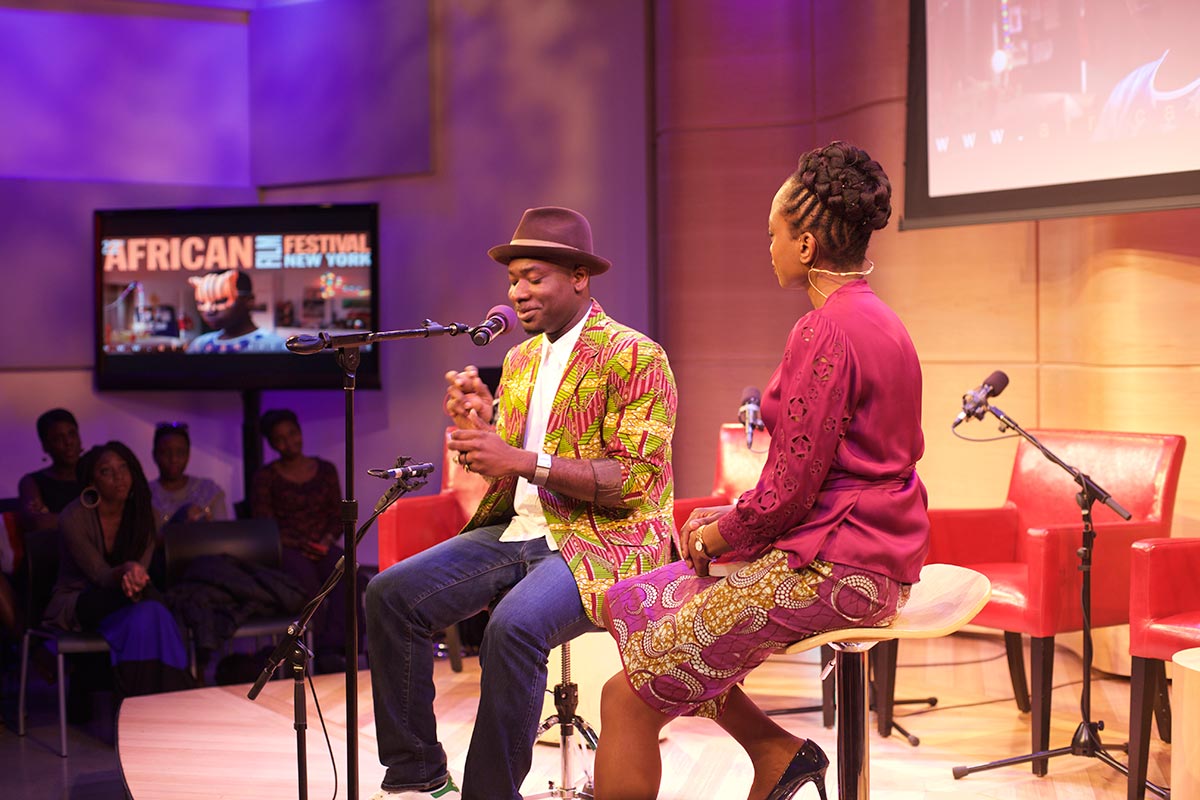
In honor of the United Nation’s International Decade for People of African Descent, starting this year and running through 2024, the New York African Film Festival dedicated this year’s focus to stories of “displacement, emigration, and personal journeys.”
“The burgeoning mobility of African men and women across the globe is the inspiration for a myriad of films from a brave new generation of transnational creators,” said the festival in its annual statement.
NYAFF kicked off its 2015 festival with a town hall celebration at the Jerome L. Greene Performance Space at WNYC, which was sponsored, in part, by the Vilcek Foundation. In line with this year’s focus, the event, “Activism and Art: Personal Journeys in the Diaspora,” featured a panel of immigrant and first-generation artists from Africa or of African descent.
Ambassador Paul Robert Tiendrébéogo, a representative of the International Organisation of La Francophonie to the UN, gave the welcoming remarks. “Living outside the continent can be an asset,” he said. “It gives an opportunity to engage with other people, with other cultures, and to pick up the best from them.”

Journeys, however, are rarely always smooth. Blitz the Ambassador, a hip-hop artist (and winner of the 2013 Vilcek Prize for Creative Promise in Contemporary Music), recalled a review of his album, Native Sun, which compared his fusion of Ghanaian musical traditions and American hip-hop to noises made by “kitchen utensils,” he says.
Such remarks can be discouraging: “I went to college, I could do other things,” Blitz says. “But the thing that keeps me going is the understanding that the African narrative is one that is seldom heard. A lot of us in this room are pioneers in the sense that we are leading a charge that we might never get real glory for, but it’s important work, because others coming will have a platform on which they can stand.”
Author Nana Ekua Brew-Hammond had similar motivations for her debut novel, Powder Necklace, which draws from her experience as a first-generation Ghanaian American teenager sent to Ghana to complete secondary school, and how it changed the way she thought of herself as a member of the diaspora. “Growing up in the 80s, the Ethiopian famine was in heavy rotation in the news; it was the flies covering the bloated-bellied kids, and I really didn’t want to be associated with being African,” Nana says.
Experiencing Ghana for herself, however, gave her a new perspective; there, she was excited to find that her name was not foreign or easily mispronounced — it had context and meaning. “I knew after that experience I wanted to write a book for a young girl who might be from another culture, whether from an African country, or a Caribbean country, or any country that is not the mainstream of where you’re living, to let her know that the world is bigger than where you’re at in this moment in time,” she said.
A recording of the panel, which included a performance by the Grammy-nominated duo Les Nubians, and a discussion moderated by Nigerian British journalist Femi Oke, will be available online soon. In the meantime, check out the other offerings of the New York African Film Festival, which will be at the Mayles Cinema Institute from May 14 — 17, and at BAMcinemateck from May 22 — 25!
Photos courtesy of Nova Scott-James
